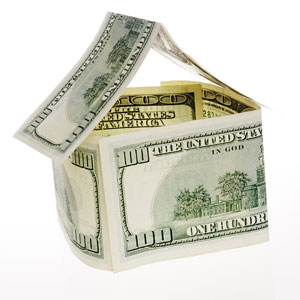Home Sales Tax Break: Making the Most of Home Sale Profits
By Steven Roberts Updated on 7/24/2017 According to economic statistics, home prices have begun to rise slightly this year. While not a drastic rise in prices, this increase provides some relief for the troubled housing market that has been devastated by the bubble burst in 2009.
According to economic statistics, home prices have begun to rise slightly this year. While not a drastic rise in prices, this increase provides some relief for the troubled housing market that has been devastated by the bubble burst in 2009.
What does this mean for homeowners?
With the sharp decline in home prices at the turn of the last decade, many homeowners were left with mortgage debt that exceeded their value.
Although many homeowners have been relieved somewhat owing to the Home Affordable Refinance Program (HARP) and its upgrade to HARP 2.0, many homeowners remain stuck with disadvantageous loan terms and mortgage rates.
With HARP 3.0 yet to be officially announced and many professionals expressing doubt that it will ever be released, many homeowners will surely appreciate this small increase in home value that could bring them closer to a non-HARP refinance by lowering their loan-to-value ratios (LTV).
For those with standard LTV ratios, however, this increase in home pricing may be an increase in profits in the event of a home sale.
Additionally, certain tax laws in effect allow home sellers to retain a larger portion of home sales profits by avoiding taxes on these funds altogether.
According to current tax regulations, homeowners selling their primary residences may be entitled to tax-free profits from these sales, with relatively loose qualifications compared to other tax guidelines.
Pre-1997 Home Sales Tax Guidelines
Before 1997, home sellers would be taxed entirely on any profits received from primary home sales.
At that time, buyers would be relieved if they purchased a more expensive property within two years of the sale. The only exemption is for borrowers 55 and older who would be entitled to claim a once-in-a-lifetime exemption up to $125,000 in profits.
Taxpayer Relief Act
In 1997, the Taxpayer Relief Act took effect, providing huge tax benefits to a vast majority of homeowners. While these new guidelines removed rollover restrictions and one-time large-scale tax exemptions, taxpayers can now receive exclusion amounts on taxes for each sale.
Taxpayers selling their primary residences can now claim up to $250,000 in profits (up to $500,000 for married couples filing jointed) with no capital gains taxation.
Repeat Tax Breaks
Under the Taxpayer Relief Act, homeowners can now claim these capital gains tax relief for each home sale, with no limit on how many times they can be obtained. However, some restrictions do apply:
To claim these tax breaks, the home must be the person’s primary residence.
Additionally, the home must be occupied for a minimum of two of the five years before the home sale. Given these requirements, borrowers can claim tax-free income from these home sales at most once every two years. Since this only applies to primary residences, investment properties, and second homes do not qualify for these benefits.
When pursuing this tax-free profit, married couples must satisfy ownership requirements. For instance, if a borrower lives in the home for the minimum two years but he or she was married for a period less than this amount of time, ownership requirements will still be met, even when filing jointly.
However, this will not satisfy the residency requirements, which require that both parties reside in the home for the minimum two years. While in this example the couple could acquire a $250,000 tax break, they would not be entitled to the full $500,000 exemption until both lived in the home for a full two years of the five preceding the sale.
Exceptions
For those who cannot meet the entire two-year residency requirement, three basic exceptions to these rules exist:
- Relocation for work. Homeowners who have lived in their primary residence for less than two years and have either transferred to a new location for employment or changed jobs can receive a portion of the exemption. For more information, contact a tax professional.
- Health reasons. If any health issues necessitate the early sale of a home, the homeowners may be entitled to some tax benefits, although documentation will be required by the IRS.
- Unforeseen and extenuating circumstances. For all other unforeseen circumstances, the IRS will evaluate each on a case-to-case basis to determine whether the situation merits these tax benefits.

Didn't find the answer you wanted? Ask one of your own.
-
 Using Cash Purchase with Delayed Financing to Win Purchase Money Contracts
View More
Using Cash Purchase with Delayed Financing to Win Purchase Money Contracts
View More
-
 Is buying smaller home the solution to ever rising real estate prices?
View More
Is buying smaller home the solution to ever rising real estate prices?
View More
-
 How to Choose a Realtor
View More
How to Choose a Realtor
View More
-
 7 Tips for Selling Your Home in a Down Market
View More
7 Tips for Selling Your Home in a Down Market
View More
-
 5 Ways to Qualify for a Mortgage as a Young Adult
View More
5 Ways to Qualify for a Mortgage as a Young Adult
View More
-
 Buying a Home - Things to Consider
View More
Buying a Home - Things to Consider
View More
-
 Mortgage Application Checklist
View More
Mortgage Application Checklist
View More
Related Articles
Ask our community a question.
Searching Today's Rates...

Featured Lenders
Lisa Stepp
RBS Citizens
Clifton Park, NY
Kat Whitman
Whitman Met, Inc.
Sacramento, CA
Cameron Burke
Vision One Mortgage
Huntington Beach, CA

